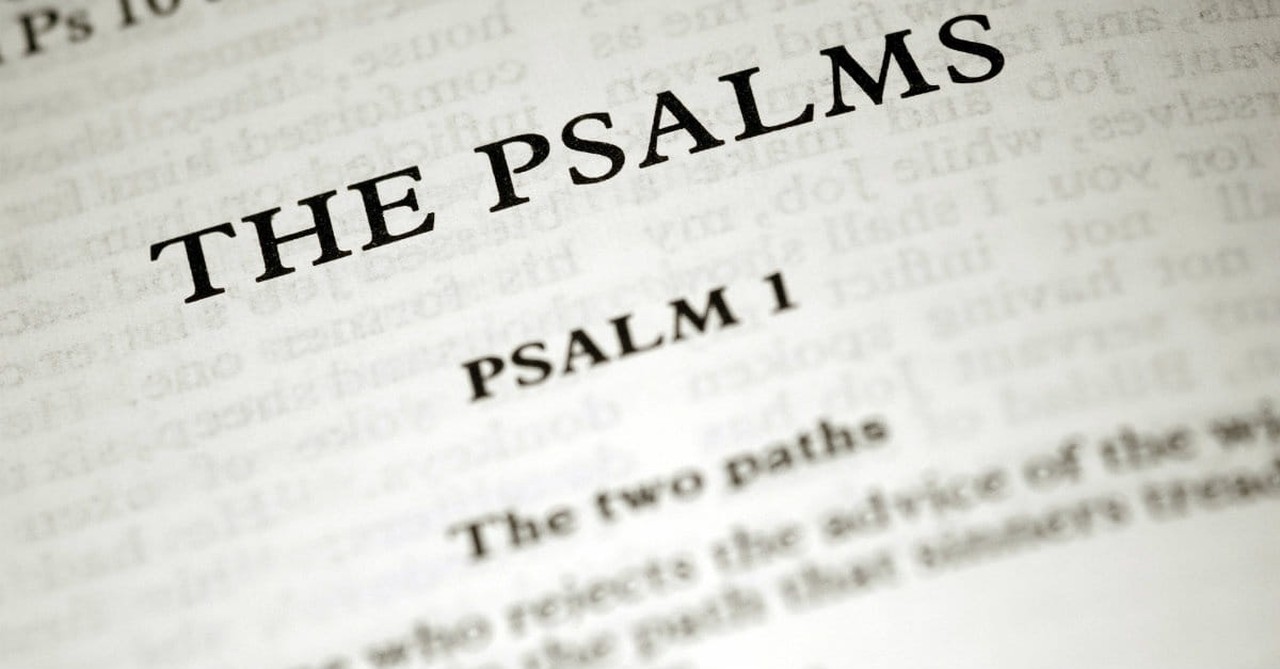10 Things You Should Know about Christian Meditation

We live in an instant culture. We’ve been conditioned to expect fast food, fast travel, and fast internet. We’ve also mastered multi-tasking so we don’t waste a nanosecond. Impatience rises up when are forced to wait. Unfortunately, this fast-paced, calendar-packed attitude carries over into our faith walk.
We want biblical knowledge and spiritual maturity and we want it now. No doubt there are many excellent sources for “quick and easy,” on-the-go, Bible intake. Things like podcasts, audio Bibles, and 5-minute devotionals are great supplemental resources that can enhance our discipleship. But quantity cannot replace quality time with God and His Word.
If we want God’s Word to do its best and most comprehensive work in us, we must meditate on Scripture. A fast and furious downpour provides limited benefit to dry soil. But a slow and steady rain softens the earth so the life-giving moisture can soak deep into the ground, nourishing even the driest roots. That’s what meditation does for our souls.
In his book, Spiritual Disciplines for the Christian Life, Donald S Whitney defines biblical meditation like this: “Meditation is ‘deep thinking on the truths and spiritual realities revealed in Scripture for the purposes of understanding, application, and prayer.’”
Here are 10 things you should know:
Photo credit: ©Unsplash
1. Biblical Meditation is Commanded in Scripture (Joshua 1:8, Philippians 4:8)

1. Biblical Meditation is Commanded in Scripture (Joshua 1:8, Philippians 4:8)
SLIDE 1 OF 10
Would you be surprised to know that God commands us to meditate on the truth of His Word? The following passages are just two of many examples:
“Keep this Book of the Law always on your lips; meditate on it day and night, so that you may be careful to do everything written in it. Then you will be prosperous and successful” (Joshua 1:8).
“If there is any excellence, if there is anything worthy of praise, think continually on these things [center your mind on them, and implant them in your heart]” (Philippians 4:8).
Yet many Christians hesitate to even consider biblical meditation because we often confuse it with the world’s warped view of this God-given tool. The goal of non-biblical meditation practices—associated with things like the New Age Movement, eastern religions, and relaxation therapy—is to empty the mind of conscious thought, to detach from everything else.
But when a Christian meditates on Scripture, our goal is to fill and attach—to fill our mind with spiritual truth in order to better understand it, apply it, and be transformed by it. And while effective Christian mediation does require us to detach ourselves from the hectic world around us, our goal is to more firmly attach ourselves to Christ.
Photo Credit: ©Unsplash
2. Biblical Meditation is a Purposeful Spiritual Discipline (Psalm 119:48)

2. Biblical Meditation is a Purposeful Spiritual Discipline (Psalm 119:48)
SLIDE 2 OF 10
Many of us regularly hear, read, study, and even memorize God’s Word, but meditation actively goes beyond those disciplines. Meditation is purposeful reflection on Scripture with the goal of application and transformation—not merely to acquire knowledge.
How do we begin? Start by eliminating as many distractions as possible. Close your laptop. Turn off your phone, music, television, and anything else that would vie for your attention. Gather your Bible, a journal, and a pen. Choose a verse or passage that God has used to capture your attention. Then ask questions, listen, reflect, and pray.
As you read and consider the passage, you should also ponder, contemplate, question, reflect, think, and muse. Turn God’s Word inside out, upside down, and examine it. Think about key words, the character of God, and how God works. Take apart the passage to deeply and thoroughly inspect it from every angle so that you can discover everything God has for you within it.
Photo Credit: ©Thinkstock
3. Biblical Meditation Fosters a Thirst for God (Psalm 1:2, Psalm 119:97)

3. Biblical Meditation Fosters a Thirst for God (Psalm 1:2, Psalm 119:97)
SLIDE 3 OF 10
Do you lack a desire to spend time in God’s Word? There is no fast-track solution. The best way to build a desire for the Bible is to feast on it. This is true in most areas of life. The more we ingest sugar, the more sugar we want. The more we exercise, the more our body craves exercise.
If we don’t currently have a regular habit of getting into God’s Word, we will need to start with discipline. Start with a reasonable goal. For instance, mediate on one verse or passage for five minutes. This discipline will develop into a habit. Then, that habit will become an anticipation and joy as we experience the beauty of God’s Word and the peace of sitting in His presence.
Then with the psalmist we will declare, “Oh, how I love Your law! I meditate on it all day long” (Psalm 119:97).
Photo Credit: ©Thinkstock/Vespie
4. Biblical Meditation Builds Our Trust in God's Provision (Psalm 77:10-12)

4. Biblical Meditation Builds Our Trust in God's Provision (Psalm 77:10-12)
SLIDE 4 OF 10
Sometimes our current circumstances are so difficult and heavy that we can think of nothing else. We wonder if and when God will come to our aid. In these times of difficulty, groaning often pushes out sleep.
The writer of the 77th psalm knew this kind of groaning. When his spirit grew faint, he meditated on the times God had provided for him in the past. He contemplated God’s former miracles and mighty deeds on his behalf. And his trust, confidence, and hope rose up.
When your spirit grows faint, reflect on all the ways God has intervened, helped, strengthened or comforted you in the past. Remember His faithfulness. Allow this meditation to bolster your trust in God’s future provision. Then, watch and wait with anticipation.
Photo Credit: ©Thinkstock/palidachan
5. Biblical Meditation Improves Our Spiritual Health (Psalm 1:3)

5. Biblical Meditation Improves Our Spiritual Health (Psalm 1:3)
SLIDE 5 OF 10
In Psalm 1, the psalmist paints a word-picture of a tree planted by streams of water, its deep roots getting everything the tree needs for healthy leaves and abundant fruit. This tree represents a spiritually mature believer.
When Christians regularly meditate on God’s Word, our lives are like that tree— vibrant, healthy, and productive. As we consistently and constantly meditate on the truth of God’s Word, we will not remain the same. God will use His truth to transform, use, and bless us!
Photo Credit: ©Thinkstock
6. Biblical Meditation Develops Courage to Obey God (Joshua 1:6-9)

6. Biblical Meditation Develops Courage to Obey God (Joshua 1:6-9)
SLIDE 6 OF 10
We humans have short memories. We forget what God has done for us in the past. We forget how God has directed us. We forget that God is the Almighty God, the maker of heaven and earth. Indeed, nothing is too hard for Him.
So, when hard times come, we worry. When the road ahead gets hard, we shrink back. When God’s way is just too difficult and we are afraid to step out, we disobey.
Meditating on the character of God builds our courage. Contemplating His mighty deeds bolsters our strength. Reflecting on His power and presence helps us say “yes” to Him when it comes to even the hardest thing.
Photo Credit: ©Thinkstock/BrianAJackson
7. Biblical Meditation Yields Deeper Insight into God's Word (2 Timothy 2:7)

7. Biblical Meditation Yields Deeper Insight into God's Word (2 Timothy 2:7)
SLIDE 7 OF 10
Although we don’t receive an automatic download of God’s truth and wisdom the moment we become a Christian, we do receive the Holy Spirit who gives us the capacity to understand and apply spiritual things (1 Corinthians 2:12). But the treasure hunt belongs to us:
“Cry out for insight, and ask for understanding. Search for them as you would for silver; seek them like hidden treasures. Then you will understand what it means to fear the Lord, and you will gain knowledge of God” (Proverbs 2:3-5).
Biblical meditation is that spiritual treasure hunt. As we dig deep into God’s Word, the Holy Spirit will uncover priceless truths about God. The more we reflect on what the Spirit reveals, the deeper our understanding will be.
“Reflect on what I am saying, for the Lord will give you insight into all this” (2 Timothy 2:7).
Be patient and relentless as you mediate on a passage. Don’t give up until God unearths the beauty.
Photo Credit: ©Thinkstock
8. Biblical Meditation Shifts Our Focus from the Difficulty of Our Circumstances to God's Love and Faithfulness (Psalm 143:1-2)

8. Biblical Meditation Shifts Our Focus from the Difficulty of Our Circumstances to God's Love and Faithfulness (Psalm 143:1-2)
SLIDE 8 OF 10
God does not promise His children lives of ease. In fact, Jesus clearly told us, “In this world you will have trouble. But take heart! I have overcome the world” (John 16:33). Unfortunately, we often allow our difficult circumstances to distract us from God’s truth. It’s easy to do. It happened to David. As his enemies pursued him, his spirit grew faint and his heart was dismayed (Psalm 143:3-4). Then, in the midst of these trials, David chose to meditate on the mightiness of God.
“I meditate on all your works and consider what your hands have done. I spread out my hands to you; I thirst for you like a parched land” (Psalm 143:5-6).
Are you in the midst of trials—or even just the stress of daily life? Purposefully turn your heart and mind to God. Reflect on all the ways He has cared for you in the past. Remember all His past provision in times of difficulty. Write them down and return to the list again and again. As you meditate on God’s love and faithfulness on your behalf, the problems of the world will recede to the background.
Photo Credit: ©Thinkstock
9. Biblical Meditation Produces Wisdom for Our Daily Lives (Psalm 119:97-99)

9. Biblical Meditation Produces Wisdom for Our Daily Lives (Psalm 119:97-99)
SLIDE 9 OF 10
All the knowledge in the world doesn’t equate with true, biblical wisdom. True wisdom comes from God alone (Job 12:13). He is the source, the author of wisdom. Meditating on God’s Word instills His wisdom in our hearts and minds.
“Oh, how I love your law! I meditate on it all day long. Your commands are always with me and make me wiser than my enemies. I have more insight than all my teachers, for I meditate on your statutes” (Psalm 119:97-99).
There is no quick and easy path to wisdom, but God will fill us with His wisdom when we take the time to internalize His Word. Like tough meat requires low, slow heat to tenderize it, we stubborn humans need to ruminate on the rich truths of God’s Word in order to get the most life-changing benefits.
Photo Credit: ©Thinkstock
10. Biblical Meditation is Active Interaction with God's Word (Psalm 119:11)

10. Biblical Meditation is Active Interaction with God's Word (Psalm 119:11)
SLIDE 10 OF 10
Meditation is not passive. It is an intentional activity. The writer of the 119th psalm took personal responsibility for it:
“I have hidden your word in my heart that I might not sin against you” (Psalm 119:11).
There is no one right way to meditate on Scripture, but if you are new to biblical mediation, you may find the PROBE method helpful. During your daily Bible reading, stop to ask questions of a verse or passage that particularly impacted you as you read the larger passage. Linger over that verse or verses and ask God questions. “Listen” for His answers and record what He says in a journal. The acronym PROBE provides a great set of questions to use:
- Pray - How can I use this Scripture to pray for myself? Others?
- Repent - What sin or area of disobedience does this Scripture call to mind of which I need to repent?
- Obey - Does this Scripture point out decisions I need to make? Directions I need to follow? Commandments I need to obey?
- Believe - What does this Scripture teach about God’s character, nature, or ways? About the nature of man? The way of salvation?
- Express - In what ways does this Scripture prompt praise or thanksgiving?
Kathy Howard helps women live an unshakeable faith for life. The author of 8 books and a former “cultural Christian,” Kathy encourages women to stand firm on our rock-solid God through difficulties or ease by embracing real, authentic faith. Find out more and get free discipleship tools and leader helps at: www.kathyhoward.org.
Photo Credit: ©Thinkstock
Originally published July 15, 2023.









